Rachel Williams looks at new carers data released for ICS and Primary Care Networks
Carers contribution to society and the NHS is invaluable. The GP Patient Survey shows that almost one of five (18.2%) of us are unpaid carers, giving help or support to family members, friends or neighbours because of long-term ill health or old age.
The NHS Long Term Plan and the Commitment to Carers recognise this, by setting out goals to help general practice identify and support carers, to ensure that their own health and well being needs are met. To ensure this support is offered effectively it is important to understand more about these carers and their experiences. For example, the GP Patient Survey also shows that carers generally report a poorer experience of primary care services than patients who do not have caring responsibilities.
To provide insight about the experiences of carers for each Integrated Care System (ICS), including breakdowns by Primary Care Network (PCN), the Commitment to Carers team has recently commissioned Ipsos to produce ICS slidepacks.
In this blog, Rachel Williams, looks at results for Coventry and Warwickshire ICS – just one of the slidepacks that are available.
Carer Isolation
Carers were more likely to have felt isolated from others in the last 12 months (18% compared with 14% non-carers).
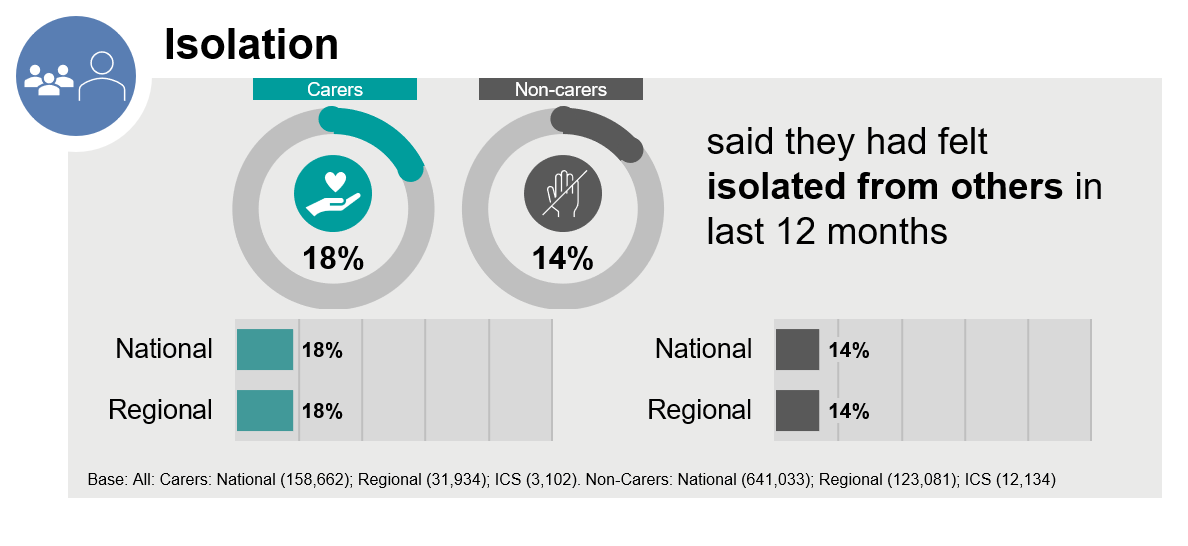
Carer Health Conditions
Carers were also more likely to say they had a long-term condition, disability or illness (61% compared with 49% non-carers). In terms of specific conditions, carers were more likely to report a long-term mental health condition (14% compared with nine per cent), and arthritis or an ongoing problem with their back or joints (22% compared with 15%).
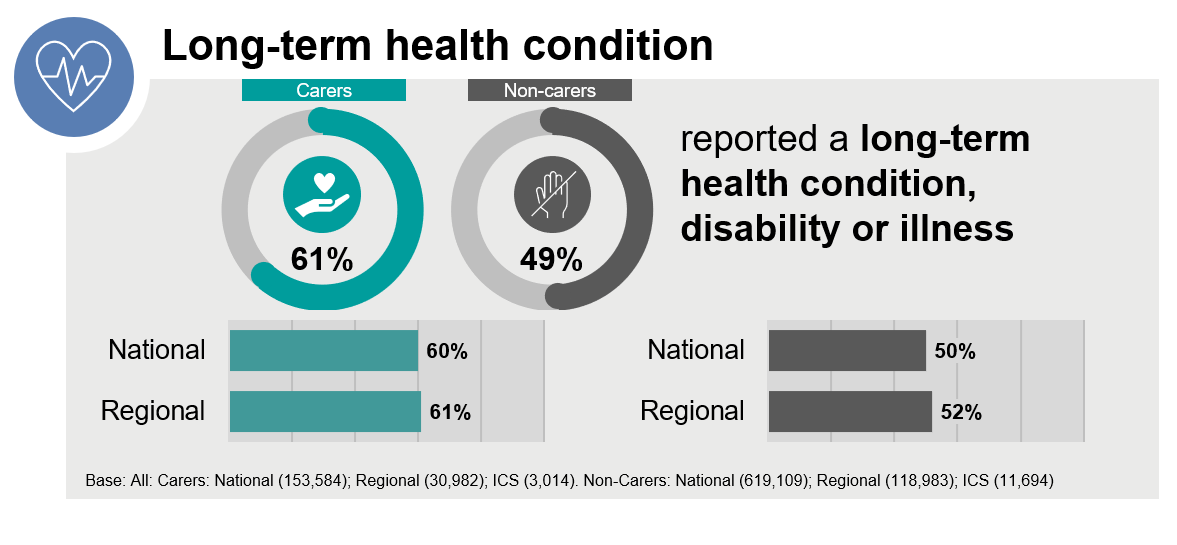
Appointment Satisfaction
Carers were less satisfied with the appointment they were offered (78% satisfied compared with 84% non-carers). Looking into potential reasons for this, carers were more likely not to take the appointment they were offered because they couldn’t see their preferred GP, the type of appointment they wanted was not available and because they couldn’t book ahead.
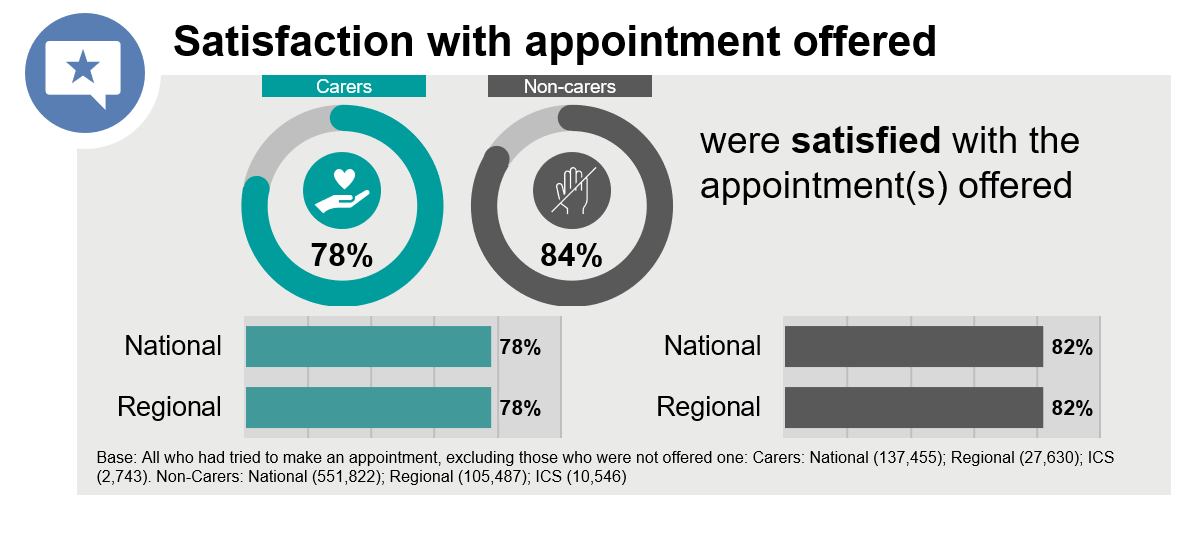
Out-of-Hours Contact and A&E Use
Carers were more likely to contact an NHS service when their practice was closed (27% compared with 18% non-carers), and more likely to resort to A&E services instead (27% of those who contacted an NHS service when their practice was closed went to A&E compared with 22% non-carers).
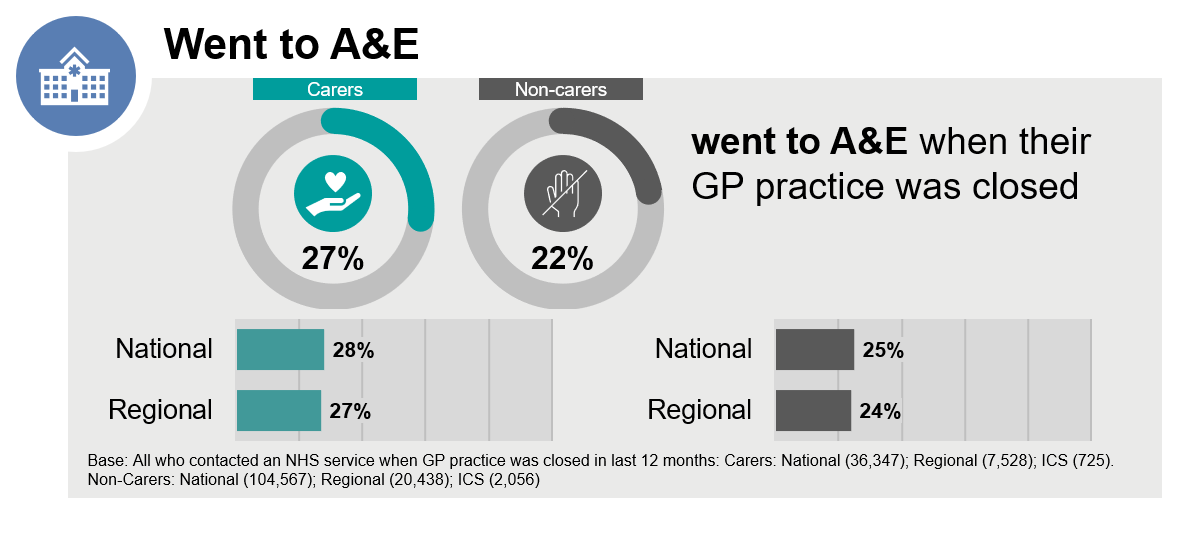
Primary Care Network Breakdowns
The slides also provide breakdowns by Primary Care Network, which can be used to identify examples of good practice as well as identifying those who may need additional support to improve their performance.
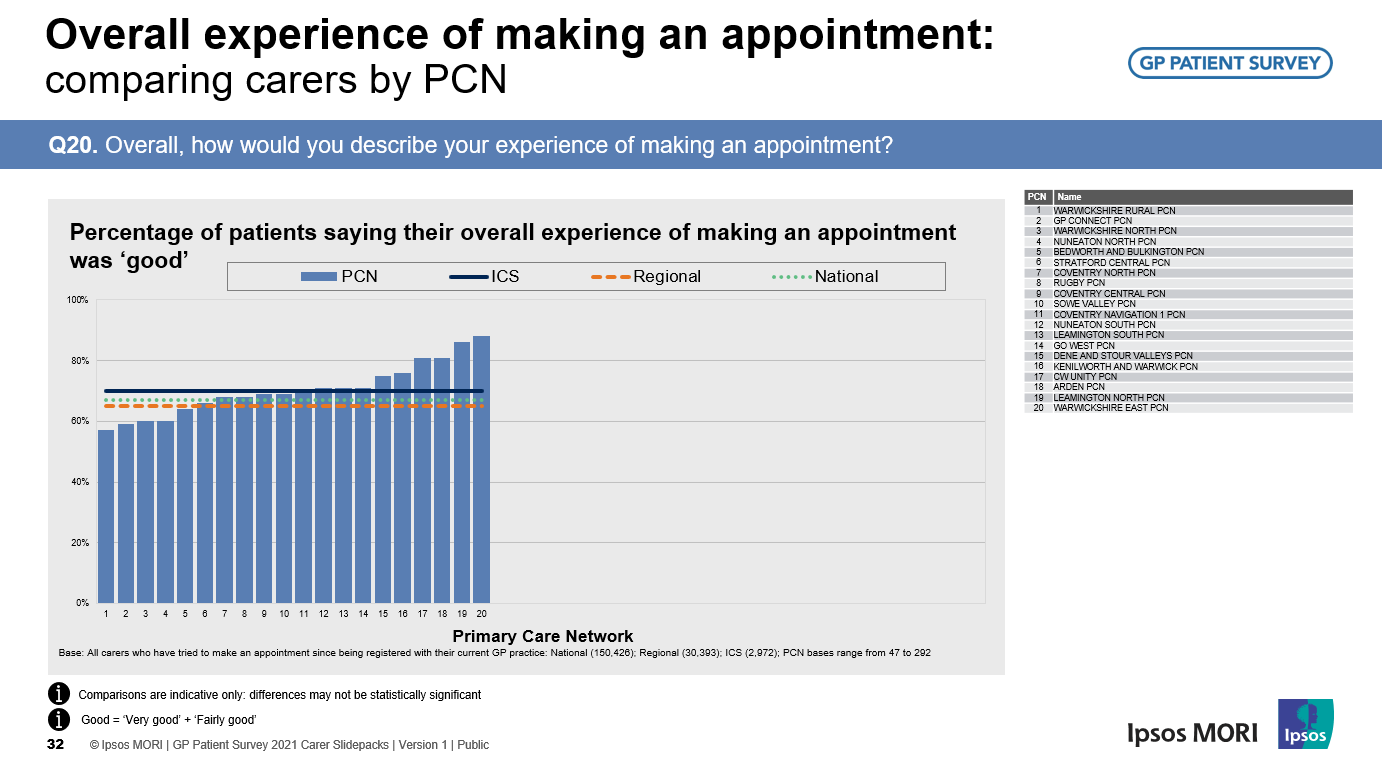
Feedback
We are always looking for ways to improve the data we share, so if you have any feedback about these slidepacks, please get in touch with the GP Patient Survey team at GPPatientSurvey@ipsos.com.
More information
For more information, please contact the GP Patient Survey team.
For more information about GPPS, visit the ‘About’ page on the survey website.
Technical information
Ipsos administers the GPPS on behalf of NHS England. This is the fifteenth year that the GPPS has been conducted in England. The latest survey consisted of around 2.4 million postal questionnaires sent to adults registered with GP practices in England from January to the end of March 2021. Around 850,000 patients completed and returned a questionnaire, resulting in a national response rate of 35.3%. Data is weighted to match the profile of the population. The data reported on this page is weighted. Read further technical information about how the survey works. For more general information about the survey, and to access the data see www.gp-patient.co.uk



